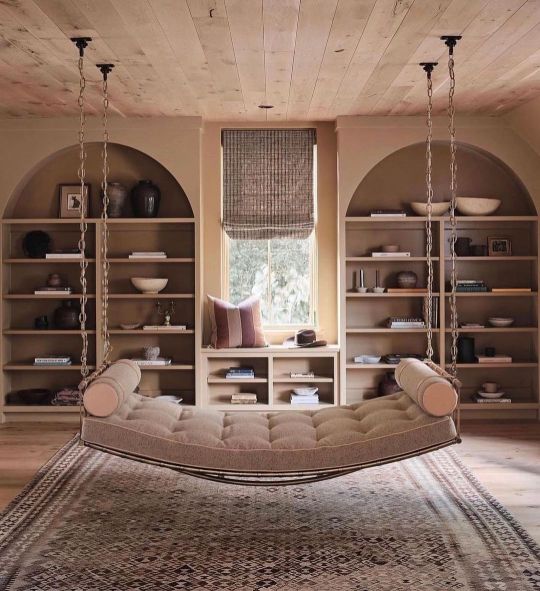#Luxury Goods
Explore tagged Tumblr posts
Text

Botswana Uncovers The Second Largest Diamond Ever Found at 2,492-Carats
A massive 2,492-carat rough diamond, believed to be the second biggest ever found, has been unearthed in Botswana, according to a mining company.
The huge stone is thought to be the biggest found since the 3,106-carat Cullinan Diamond was discovered in South Africa in 1905.
Canadian mining company Lucara Diamond Corp. announced Thursday that the “exceptional” gem was found intact in its Karowe mine.
Calling it a “remarkable” find, the company celebrated it as “one of the largest rough diamonds ever unearthed.”
It was detected, unearthed and recovered thanks to the company’s Mega Diamond Recovery (MDR) X-ray Transmission (XRT) technology, which is designed to “identify and preserve large, high-value diamonds,” the company said in a press release.


William Lamb, president and CEO of Lucara, said in the release: “We are ecstatic about the recovery of this extraordinary 2,492 carat diamond.”
Rough diamonds are usually classified as being gem-quality, near-gem or industrial-quality, depending on their color, clarity, size and shape.
Prior to the latest announcement, the second largest discovery was thought to be the Lesedi La Rona, a 1,109-carat stone also found by Lucara at the Karowe mine in 2015. The diamond was sold to luxury jeweler Graff for $53 million two years later.
Lucara’s spokeswoman said the company had found found six of the top 10 diamonds ever discovered.
The stone will be properly evaluated over the coming weeks, the spokeswoman added.



The diamond was presented to Botswana’s President Mokgweetsi Masisi on Thursday, according to Reuters.
Last month, Botswana, the world’s biggest diamond producer by value, proposed a law to request that, once they are granted licenses, mining companies sell a 24% stake in mines to local investors unless the government exercises its option to acquire the shareholding, according to Reuters.
The record-breaking 3,106-carat Cullinan Diamond was found in 1905 at the Premier mine in Transvaal, now South Africa. It was subsequently cut into smaller stones, some of which form part of the British royal family’s crown jewels.
By Lianne Kolirin.
#Botswana Uncovers The Second Largest Diamond Ever Found at 2492-Carats#Karowe mine in Botswana#Lucara Diamond Corp.#Botswana’s President Mokgweetsi Masisi#diamond#diamonds are forever#diamonds are a girls best friend#luxury#luxury living#luxury lifestyle#luxury goods#billionaire lifestyle#rich#sexy
63 notes
·
View notes
Text
Single women headed households as independent widows, deserted wives, single mothers and spinsters, earning their own livings, often on the breadline in rural communities, but sometimes very successful in towns: especially in luxury goods and retail business, lending small amounts of money to familiar faces – trusted creditors.
"Normal Women: 900 Years of Making History" - Philippa Gregory
#book quote#normal women#philippa gregory#nonfiction#single women#head of the household#independent#widow#deserted#wife#single mother#spinster#breadline#rural communities#towns#luxury goods#retail#moneylending#creditors#trusted
14 notes
·
View notes
Text

#louis vuitton#speedy 25#takashi murakami#multicolor#white#gold#hardware#luxury goods#leather#paris#y2k#fashion#jessica simpson#marc jacobs#2000s#coquette
3 notes
·
View notes
Text
I watched a video by a guy who made a dupe of a very expensive all-plastic chair and had done one other video and he was like "guys i am NOT providing the file i do NOT want them to sue me"
and i thought that was pretty funny cause
1. as people pointed out in the comments the design was very easy to replicate in almost any 3D modeling program. The guy kind of struggled with it because he was new to 3D modeling (no shame! we all start somewhere) but... yeahhhh an experienced artist could make that fairly easily.
2. duplicating 3D models and providing the designs to people is what i do. (although tbf a very "fancy" business might be more s.l.a.p. happy than a business who stopped producing those molds ages ago)
3. although i support paying designers/artists well, there is something a touch... say, ironic... about selling something that is just an injection molded plastic lawn chair for $1200



#shutupotter#luxury goods#lmfao#also it doesnt look comfortable at all#granted it is made out of 25% recycled plastic so thats nice#unfortunately for them a bunch of other people#already make lawn chairs for much cheaper that are 100% recycled plastic#theyre still somewhat pricey like $200+ but at least they arent over a thousand
3 notes
·
View notes
Text

#chanel#logo#cc#coco chanel#black and white#luxury#designer#labels#label#luxury goods#designer goods#brand#brand name#branding#designer brand#designer brands#fashion house#fashion#iconic#legacy#timeless
21 notes
·
View notes
Text
https://www.wsj.com/us-news/education/luxury-beliefs-that-only-the-privileged-can-afford-7f6b8a16
‘Luxury Beliefs’ That Only the Privileged Can Afford

By: Rob Henderson
Published: Feb 9, 2024
In the same way that you don’t notice the specifics of your own culture until you travel elsewhere, you don’t really notice your social class until you enter another one. As an undergraduate at Yale a decade ago, I came to see that my peers had experienced a totally different social reality than me. I had grown up poor, a biracial product of family dysfunction, foster care and military service. Suddenly ensconced in affluence at an elite university—more Yale students come from families in the top 1% of income than from the bottom 60%—I found myself thinking a lot about class divides and social hierarchies.
I’d thought that by entering a place like Yale, we were being given a privilege as well as a duty to improve the lives of those less fortunate than ourselves. Instead, I often found among my fellow students what I call “luxury beliefs”—ideas and opinions that confer status on the upper class but often inflict real costs on the lower classes. For example, a classmate told me “monogamy is kind of outdated” and not good for society. I asked her what her background was and if she planned to marry. She said she came from an affluent, stable, two-parent home—just like most of our classmates. She added that, yes, she personally planned to have a monogamous marriage, but quickly insisted that traditional families are old-fashioned and that society should “evolve” beyond them.
My classmate’s promotion of one ideal (“monogamy is outdated”) while living by another (“I plan to get married”) was echoed by other students in different ways. Some would, for instance, tell me about the admiration they had for the military, or how trade schools were just as respectable as college, or how college was not necessary to be successful. But when I asked them if they would encourage their own children to enlist or become a plumber or an electrician rather than apply to college, they would demur or change the subject.
In the past, people displayed their membership in the upper class with their material accouterments. As the economist and sociologist Thorstein Veblen famously observed in his 1899 book “The Theory of the Leisure Class,” status symbols must be difficult to obtain and costly to purchase. In Veblen’s day, people exhibited their status with delicate and restrictive clothing, such as top hats and evening gowns, or by partaking in time-consuming activities, such as golf or beagling. The value of these goods and activities, argued Veblen, was in the very fact that they were so pricey and wasteful that only the wealthy could afford them.
Today, when luxury goods are more accessible to ordinary people than ever before, the elite need other ways to broadcast their social position. This helps explain why so many are now decoupling class from material goods and attaching it to beliefs.
Take vocabulary. Your typical working-class American could not tell you what “heteronormative” or “cisgender” means. When someone uses the phrase “cultural appropriation,” what they are really saying is, “I was educated at a top college.” Only the affluent can afford to learn strange vocabulary. Ordinary people have real problems to worry about.
When my classmates at Yale talked about abolishing the police or decriminalizing drugs, they seemed unaware of the attending costs because they were largely insulated from them. Reflecting on my own experiences with alcohol, if drugs had been legal and easily accessible when I was 15, you wouldn’t be reading this. My birth mother succumbed to drug addiction soon after I was born. I haven’t seen her since I was a child. All my foster siblings’ parents were addicts or had a mental health condition, often triggered by drug use.
A well-heeled student at an elite university can experiment with cocaine and will probably be just fine. A kid from a dysfunctional home with absentee parents is more likely to ride that first hit of meth to self-destruction. This may explain why a 2019 survey conducted by the Cato Institute found that more than 60% of Americans with at least a bachelor’s degree were in favor of legalizing drugs, while less than half of Americans without a college degree thought it was a good idea. Drugs may be a recreational pastime for the rich, but for the poor they are often a gateway to further pain.
Similarly, a 2020 Yahoo News/YouGov survey found that the richest Americans showed the strongest support for defunding the police, while the poorest Americans reported the lowest support. Consider that compared with Americans who earn more than $50,000 a year, the poorest Americans are three times more likely to be victims of robbery, aggravated assault and sexual assault, according to federal statistics. Yet it’s affluent people who are calling to abolish law enforcement. Perhaps the luxury belief class is simply ignorant of the realities of crime.
Most personal to me is the luxury belief that family is unimportant or that children are equally likely to thrive in all family structures. In 1960, the percentage of American children living with both biological parents was identical for affluent and working-class families—95%. By 2005, 85% of affluent families were still intact, but for working-class families the figure had plummeted to 30%. As the Harvard political scientist Robert Putnam stated at a 2017 Senate hearing: “Rich kids and poor kids now grow up in separate Americas.”
In 2006, more than half of American adults without a college degree believed it was “very important” that couples with children should be married, according to Gallup. Fast-forward to 2020, and this number had plummeted to 31%. Among college graduates polled by Gallup, only 25% thought couples should be married before having kids. Their actions, though, contradict their luxury beliefs: Most American college graduates who have children are married. Despite their behavior, affluent people are the most likely to say marriage is unimportant. Their message has spread.
I noticed that many Yale students selectively concealed their opinions or facts about their lives. More than one quietly confessed to me that they were pretending to be poorer than they really were, because they didn’t want the stigma of being thought rich. Why would this stigma exist at a rich university full of rich students? It’s a class thing. For the upper class, indicating your social position by speaking about money is vulgar. Sharing your educational credentials is a classier shorthand, but broadcasting your seemingly altruistic and socially conscientious luxury beliefs is the best of all.
It is harder for wealthy people to claim the mantle of victimhood, which, among the affluent, is often a key ingredient of righteousness. Researchers at Harvard Business School and Northwestern University recently found evidence of a “virtuous victim” effect, in which victims are seen as more moral than nonvictims who behave in exactly the same way: If people think you have suffered, they will be more likely to excuse your behavior. Perhaps this is why prestigious universities encourage students to nurture their grievances. The peculiar effect is that many of the most advantaged people are the most adept at conveying their disadvantages.
Occasionally, I raised these critiques with fellow students or graduates of elite colleges. Sometimes they would reply by asking, “Well, aren’t you part of this group now?” implying that my appraisals were hollow because I moved within the same milieu. But they wouldn’t have listened to me back when I was a lowly enlisted man in the military or when I was washing dishes for minimum wage. If you ridicule the upper class as an outsider, they’ll ignore you. The requirements for the upper class to take you seriously—credentials, wealth, power—are also the grounds to brand you a hypocrite for daring to judge.
But negative social judgments often serve as guardrails to deter detrimental decisions that lead to unhappiness. To avoid misery, I believe we have to admit that certain actions and choices, including single parenthood, substance abuse and crime, are actually in and of themselves undesirable and not simply in need of normalization. Indeed, it’s cruel to validate decisions that inflict harm. And it’s a true luxury to be ignorant of these consequences.
Rob Henderson is the author of “Troubled: A Memoir of Foster Care, Family, and Social Class,” which will be published on Feb. 20 by Gallery Books.
[ Via: https://archive.today/FAksi ]
#Rob Henderson#luxury beliefs#leisure class#elite class#monogamy#virtuous victim#victimhood culture#victimhood#Similarly#defund the police#abolish the police#luxury goods#elite colleges#elite universities#privilege#religion is a mental illness
8 notes
·
View notes
Text
Production focusing on status symbols and luxury goods, on advertising and branding, while ignoring use-value spells death in an age of climate crisis. There are so many vital issues to be addressed--guaranteeing universal access to food, water, electricity, shelter, and transportation; combating rising tides and flooding; protecting ecology; and so on. We must prioritize the production of things necessary to respond to the crisis, not things whose worth resides only in their capacity to produce value. Slow Down by Kohei Saito
#quotes#21st century#nonfiction#kohei saito#slow down#use-value vs value#what is important#human needs#climate crisis#status symbol#luxury goods#environmental damage
3 notes
·
View notes
Text

@mudmadevulture 🦅||
#art#generationalwealth#mansorus#mental health awareness#philly#a man and his watch#luxury goods#luxury watch market#audemarspiguet
12 notes
·
View notes
Text
Because I mentioned some of the things that my abuser made me buy for her in this blog, Tumblr now advertises stupid watches and bags to me constantly.
2 notes
·
View notes
Text
himemiya 🤍
#Princess sickness#japan#luxury lifestyle#my upload#tokyo#pink#pearl#velvet#pink velvet#penthouse party#pink pilates princess#princesscore#prada odette heart bag#luxury goods#hot girl shit#lhdc#pink Prada#living in Japan#black in japan#new years eve#New Years party#art party#I’m really running away with these tags but they’re applicable lmao#coquette#winter#black girl luxury#glamour#glamorous#glamourous
15 notes
·
View notes
Photo










Home Sweet Home
A contemporary farmhouse in Nashville, Tenn.
#farmhouse#contemporary farmhouse#modern farmhouse#farmhouse living#farmhouse lifestyle#modern home#modern design#beauty#beautiful#beautiful home#real estate#luxury#luxury goods#luxury home#luxury residences#luxury real estate#luxury living#luxury lifestyle#fresh#country#country life#country living#Nashville#home sweet home
127 notes
·
View notes
Photo

Hermès Case For AirPods Pro 2: A $930 For Your $250 Apple TWS Earbuds
Who wanna splurge on a really, really expensive AirPods accessory?
Follow us for more Tech Culture and Lifestyle Stuff.
2 notes
·
View notes
Text

#pink aesthetic#cute#pastel pink#pink#nails#50 shades of pink#glam nails#pink nails#fashion#cutie#so cute#pink aura#bright pink#pink coquette#pink design#pink dreams#luxury goods#luxury
2 notes
·
View notes
Text
Welcome to Rich Aunt Finance: Empowering Childfree Women to Build Wealth and Live Luxuriously
Welcome to Rich Aunt Finance, a personal finance blog for childfree women who prioritize financial freedom and luxury living. Here, we believe that financial success is achievable for anyone, and we're committed to helping our readers make informed decisions about budgeting, investing, and buying luxury goods.
At Rich Aunt Finance, we understand that being childfree allows us to live a certain lifestyle that may not be possible for those with children. That's why we focus on the unique financial challenges and opportunities that come with this lifestyle, including the choice to be solo by choice. We're all about creating a life of abundance, without the burden of debt.
We're committed to providing our readers with insightful and practical advice on a wide range of personal finance topics. From saving for retirement and building an emergency fund to investing in stocks and real estate, we've got you covered. We'll also share our experiences with luxury goods and services, showing you how to indulge in the finer things in life without breaking the bank.
So, whether you're just starting on your financial journey or you're a seasoned investor, Rich Aunt Finance has something for you. Let's embark on this journey together and achieve financial success!
#finance#money management#luxury goods#childfree#solo by choice#antidebt#wealthbuilding#financialplanning
3 notes
·
View notes
